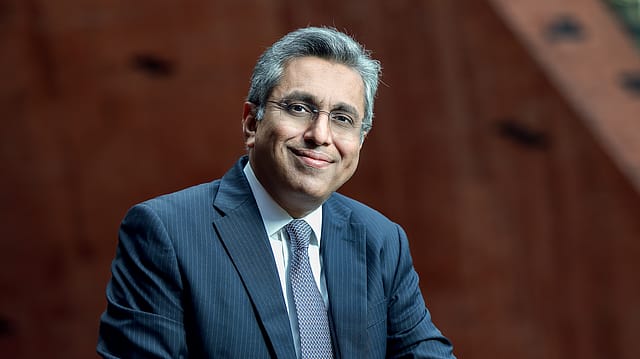Hybrid is an extension of ICE: Mahindra CEO Anish Shah
ADVERTISEMENT

Mahindra & Mahindra managing director and chief executive officer Anish Shah looks at hybrids as an extension of internal combustion engine (ICE) vehicles and not much different from ICE.
"Hybrid is a bridge to EV. It's really not that different from ICE in many ways. It's not really the technology for the future that EV is," Shah says in a media briefing after the third-quarter earnings of Mahindra & Mahindra.
"EV is the market for the future because it is a completely new technology and it addresses all the issues around emissions and operating costs. The product is far superior than ICE in terms of how to drive," Shah says.
This comes at a time when hybrid car sales have outpaced electric vehicles as buyers find EVs either too costly or charging infrastructure patchy. Hybrid car sales went up from around 18,000 units in 2022 to 83,000 units in 2023, recording a growth of 361%.
Several carmakers including Toyota and Maruti Suzuki have urged the government to lower Goods and Services Tax on hybrid vehicles. Hybrids currently attract 43% GST compared with 5% GST on EVs.
According to Shah, EV penetration will increase with the development of the charging ecosystem. "There are markets where EV penetration is 90%-plus (Norway). Some of the challenges come from not having an ecosystem in place. It's tough for people to wait for 30 minutes to charge a car. Those are some of the challenges that the industry will have to work through," he explains.
"If the ecosystem development is slower, then the demand for products (EVs) will start getting a little less before the ecosystem starts catching up," Shah adds.
Mahindra's new EVs will have a charging time of 30 minutes as against 45-50 minutes at present, Shah told Fortune India last year. "Even at 30 minutes, you can't justify the cost of land in Mumbai or most large cities, because a charger can serve only 48 cars in a day even if everything is perfect," Shah said.
Mahindra & Mahindra sold 4,242 EVs in 2023, cornering the third-largest market share after Tata Motors and MG Motor India, according to Vahan data.
On Mahindra Electric Automobile Ltd's (MEAL) ₹80,580-crore valuation despite having just one EV—the XUV 400—in the market, Shah says valuations are never based on the present, they are based on the expectations of the future.
Mahindra plans to start production of its 'born electric' SUVs (sport utility vehicles) in the later part of the ongoing calendar year to recover the ground lost to Tata Motors and MG Motor India.
The automaker is looking at EVs accounting for 20-30% of its sales by 2027. The company is likely to get there faster if the charging time comes down, says Shah.
The carmaker has no plans to reduce the price of its electric vehicle XUV 400 even though rivals including market leader Tata Motors and MG Motor India have slashed EV prices amid falling lithium-ion battery rates.